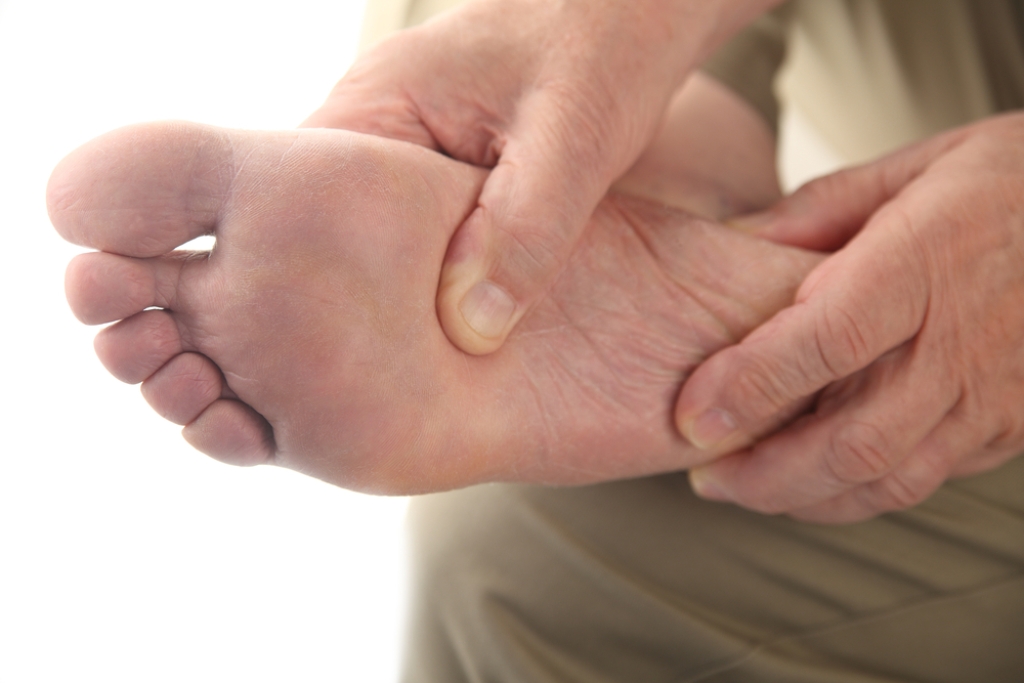 Though it is a metabolic disorder, diabetes can have serious implications for your foot health. Diabetes can cause the feet to be less sensitive and slow to heal from damage, which can result in complications such as diabetic foot ulcers. Fortunately, there are precautions that you can take to get ahead of many diabetic foot problems. If you have diabetes, it is recommended that you perform daily foot checks to see if you have any cuts, sores, or blisters so that you can treat them immediately and avoid infections. Keep your feet clean by washing them daily and drying them thoroughly, then apply a thin layer of lotion to the tops and bottoms of the feet, avoiding the areas between your toes where the extra moisture can help fungus thrive. Regularly trim your toenails straight across to avoid ingrown nails, and wear comfortable shoes instead of going barefoot. If you have a history of diabetes-related foot problems, it is suggested that you are under the care of a podiatrist who can help you take care of your feet.
Though it is a metabolic disorder, diabetes can have serious implications for your foot health. Diabetes can cause the feet to be less sensitive and slow to heal from damage, which can result in complications such as diabetic foot ulcers. Fortunately, there are precautions that you can take to get ahead of many diabetic foot problems. If you have diabetes, it is recommended that you perform daily foot checks to see if you have any cuts, sores, or blisters so that you can treat them immediately and avoid infections. Keep your feet clean by washing them daily and drying them thoroughly, then apply a thin layer of lotion to the tops and bottoms of the feet, avoiding the areas between your toes where the extra moisture can help fungus thrive. Regularly trim your toenails straight across to avoid ingrown nails, and wear comfortable shoes instead of going barefoot. If you have a history of diabetes-related foot problems, it is suggested that you are under the care of a podiatrist who can help you take care of your feet.
Diabetic foot care is important in preventing foot ailments such as ulcers. If you are suffering from diabetes or have any other concerns about your feet, contact one of our podiatrists from Manhattan Footcare. Our doctors can provide the care you need to keep you pain-free and on your feet.
Diabetic Foot Care
Diabetes affects millions of people every year. The condition can damage blood vessels in many parts of the body, especially the feet. Because of this, taking care of your feet is essential if you have diabetes, and having a podiatrist help monitor your foot health is highly recommended.
The Importance of Caring for Your Feet
- Routinely inspect your feet for bruises or sores.
- Wear socks that fit your feet comfortably.
- Wear comfortable shoes that provide adequate support.
Patients with diabetes should have their doctor monitor their blood levels, as blood sugar levels play such a huge role in diabetic care. Monitoring these levels on a regular basis is highly advised.
It is always best to inform your healthcare professional of any concerns you may have regarding your feet, especially for diabetic patients. Early treatment and routine foot examinations are keys to maintaining proper health, especially because severe complications can arise if proper treatment is not applied.
If you have any questions please feel free to contact our offices located in Manhattan and Brooklyn, NY . We offer the newest diagnostic and treatment technologies for all your foot and ankle needs.


